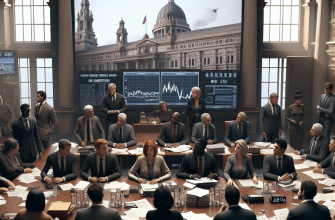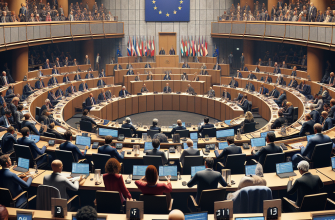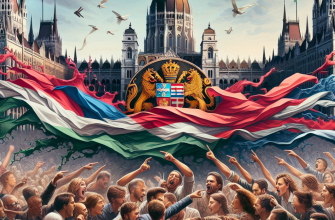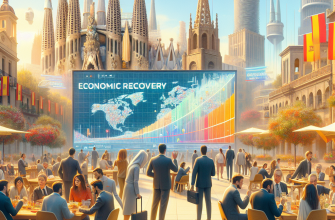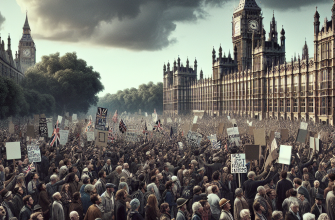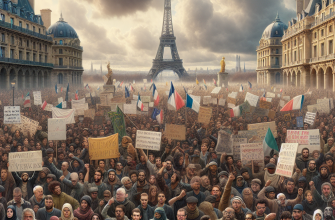<h1>Germany's New Coalition Government Faces Early Challenges</h1>
<p>Friends of mine, let us dive into the whirlwind that has recently engulfed Germany's political landscape. With the forward motion of time that is quicker than a jackrabbit on caffeine, we find ourselves looking at the "traffic light coalition," which has reasonably captured everyone's attention (and not for the best reasons). You see, the coalition is a blend of three parties: the Social Democratic Party (SPD), The Greens, and the Free Democratic Party (FDP). Who would have thought that mixing red, green, and yellow lights would cause an accident on the political freeway? All of this began in December 2021, shortly after the nation engaged in a slightly dramatic federal election that concluded with Olaf Scholz of the SPD taking the helm as the Federal Chancellor.</p>
<h2>Background of the Coalition</h2>
<p>Now, let’s unpack this interesting medley of political ideologies, shall we? The SPD and The Greens are your traditional center-left sprinters, racing for social equality and environmental sustainability, while the FDP, with its flair for economic liberalism, brings a bit of a dash of entrepreneurial spice to the mix. You could say it’s like trying to make a fine soup with ingredients in direct conflict with each other. Its very name, "traffic light coalition," embodies the colors of the party affiliations — red looks for social reforms, green chases eco-friendly initiatives, and yellow champions fiscal freedom. A brew that sounds intriguing, yet oh-so-fragile! </p>
<h2>Ideological Differences and Economic Challenges</h2>
<p>Right off the bat, my dear readers, the coalition was on shaky ground — like trying to build a house of cards on a windy day. The ideological clashing caused more traffic jams than the autobahn during a holiday! Budget planning? Gridlocked! Environmental policies? Gridlocked! Social services? You guessed it — gridlocked! The cherry on top was the economic crisis birthed by the relentless march of the COVID-19 pandemic followed by an energy crisis, turning this trio into a soap opera worthy of binge-watching. Moreover, Germany's fiscal constraints known as the debt brake (_Schuldenbremse_) were like handcuffs for a raucous group of teens trying to throw a party; limiting their joy to a mere 0.35% structural deficit to GDP.</p>
<h2>The Crisis Unfolds</h2>
<p>Now, as if scripted by some dramatic writer, in November 2023, the Federal Constitutional Court swooped in like an unwelcome guest to declare parts of the budget policy unconstitutional. A whopping €60 billion shortfall emerged, leading to a cacophony of protests, particularly from the farmers who, let’s face it, were not pleased as punch with the situation. Public trust? Eroded faster than my enthusiasm for broccoli on a bad day!</p>
<h2>Christian Lindner's Dismissal</h2>
<p>Fast forward to November 6, 2024, and the atmosphere became even tenser. In a jaw-dropping twist, Chancellor Olaf Scholz decided to dismiss Finance Minister Christian Lindner, the man behind the wheel of the FDP. Lindner had cooked up an 18-page manifesto calling for tax cuts, halting new regulations, and slashing public spending — including seemingly the vital climate action! The SPD and The Greens considered this more of a restaurant food fight than a diplomatic talk, leading to frantic crisis meetings like a sitcom finale that nobody wanted to end. Ultimately, the coalition came crashing down — a spectacular fall worthy of a season finale, indeed!</p>
<h2>Aftermath of the Coalition Collapse</h2>
<p>In the aftermath, the landscape was dotted with FDP ministers resigning, as if fleeing a sinking ship. Left behind were the SPD and The Greens to form a two-party minority government — a party for two isn't quite as fun, is it? Volker Wissing, the Transportation Minister, made a last-ditch decision to remain in his role while swapping hats with the Minister of Justice. Cem Özdemir, in a fit of bureaucratic acrobatics, took over the education reins from Bettina Stark-Watzinger. Such dynamic political juggling was indeed commendable!</p>
<h2>Vote of No Confidence</h2>
<p>Now, let's talk about the tension that escalated to firework levels on December 16, 2024. The Bundestag, in full-blown drama mode, conducted a vote of confidence in the Scholz cabinet. The outcome? A resounding loss of confidence! Picture this: 207 votes for, 394 votes against, and 116 abstentions, primarily from The Greens. It was like the political version of "The Hunger Games" — but in this case, early elections were on the horizon, scheduled for that flashy date of February 23, 2025.</p>
<h2>Economic and Political Implications</h2>
<p>Now, let us not forget the larger canvas here. The collapse of this coalition has cast a glaring spotlight on the immense economic and fiscal potholes Germany is grappling with. This is one of the worst crises the country has faced since World War II — and remember, they aren’t carrying the light burden of easy solutions. Constraint? You won't find it as the debt brake rule restricts the government's agility to maneuver through these stormy seas.</p>
<h2>Future Prospects</h2>
<p>As we brace ourselves for the riveting drama that will unfold in February 2025 during the impending elections, a question looms larger than life: will the center-right CDU/CSU and the far-right AfD be poised to strike? These shifts could redefine the German political scene. Furthermore, Scholz's diplomatic antics with Russia have earned him some stern side-eye from the European Parliament, adding another layer of complexity to this already spicy stew. There’s uncertainty swirling like fog surrounding the future of Germany's politics, and its economic compass is swaying with the winds of change.</p>
<h2>Key Points</h2>
<ul>
<li><b>Coalition Collapse:</b> The "traffic light coalition" fizzled out due to fierce disagreements over economic policies, resulting in the dismissal of Christian Lindner and a retreat into opposition by the FDP.</li>
<li><b>Economic Challenges:</b> Germany is wrestling with daunting fiscal issues, including the stringent debt brake rule and ongoing economic crises.</li>
<li><b>Vote of No Confidence:</b> The Bundestag's resounding vote of no confidence in the Scholz cabinet sets the stage for early elections, scheduled for February 2025.</li>
<li><b>Political Implications:</b> The collapse has implications for German politics, with possible shifts towards center-right or far-right ideologies in the upcoming elections.</li>
<li><b>Future Elections:</b> The elections in February 2025 will be pivotal in steering the future course of Germany's economic and political horizons.</li>
</ul>


